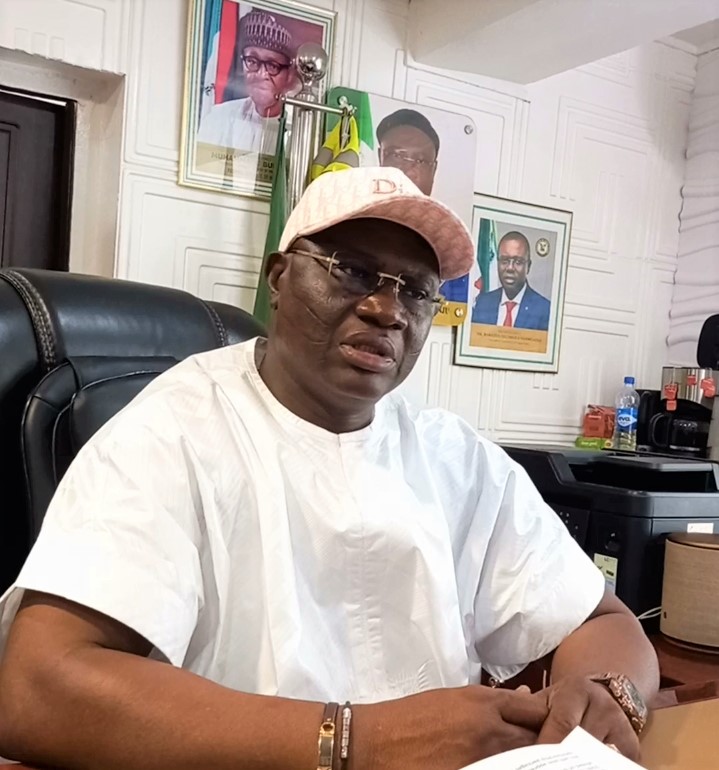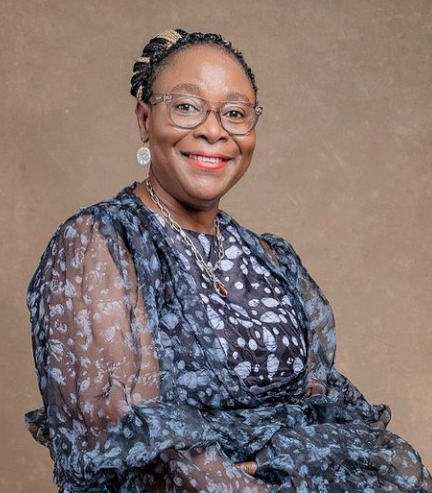In its continued struggle for improved welfare of its members, the Maritime Workers Union of Nigeria (MWUN) says it would not relent in ensuring that its members are accorded high human regards by those who engage them for work. The Union demands that its members be exposed to opportunities for regular and relevant training to equip them well to be competitive among workers in similar jobs around the world.
In this interview, President General of the MWUN, Comrade Adewale Adeyanju, speaks on very germane issues to the growth of the maritime worker. He says that while the worker’s salary is important, it is equally very important that the terminals where the workers carryout their daily duties be equipped with standard sanitation facilities befitting for humans.
Adeyanju said that Union has mapped out plans to address a number of issues, which he shares in this interview.
The interview!
Kindly talk to us on how well negotiations that you have been doing have been able to push, strengthen and sustain the issue of welfare of the maritime workers, particularly your members
Adeyanju: Well, I want to thank you for having me on your programme. I think the Maritime Workers Union of Nigeria today has so transformed, unlike it was before; when the dockworkers, the seafarers, the shipping and that of NPA didn’t have what we call Collective Bargaining Agreement (CBA). But under our watch, we are improving upon what we met on ground when I took over. The issue of CBA should be paramount in the mind of any leader. We started with the dockworkers where we have National Joint Industrial Council (NJIC), and from that they have what we call the CBA, between the terminal operators and the Nigerian Ports Authority and NIMASA, being witnessed by other stakeholders in the NJIC.
So, the welfare should be the best thing you need to think of to promote and to improve the condition of your members. I think that is what we have done in the past. If you see how the way the port very calm today, it has to do with the ‘dos and don’ts’ coming from the Maritime Workers Union of Nigeria and its Exco; you know I have four branches; the Dockworkers, the Nigerian Ports Authority, the Seafarers and that of Shipping. But we still have a little challenge with Shipping, when we found out that their take-home is nothing to write home about; somebody will put in 30-35 years’ service, if the person is leaving tomorrow, it is like a death-sentence to the person. So, we are trying to see how we can come in to improve on that. But, the dockworkers, theirs is every two years, which I think has helped and improved the welfare of the dockworker across the board. So, the issues we have with the shipping, very soon we are going to get to the root of the whole matter. While shipping companies are still riding on the back of Covid, which is no longer with us in this country; they are using that as an excuse for them to do whatever they like, just to not improve the welfare of the workers under them. Then the dockworkers, we are still doing something to make sure that their welfare is being improved more than the way we met.
In all these that you have been doing over the years, how would you describe the workplace of your members… If you want to rate it, how is it?
Adeyanju” Well, I think that when they concessioned the Ports, the fear of the unknown caught all of us leaders about how well the private investors improve the welfare of the workers and the work environment. But, when you look round the environment within the Ports now, some of the terminal operators have done well; go to APM Terminals, go to JosepDam that we condemned in the past that it was one of the worst terminals before, but now it is very clean, the environment is conducive for terminal operations. Go to Ports and Cargo, go to PTML, the environment is good and I think the workers too; environment that is good for the workers, would make them perform excellently and the throughput or input we are talking about would be increased from the terminal operations. The environment, I can rate it maybe 70 or 80 per cent, while some terminals are yet to bring in the standard required by international organisations. Because, any environment that is not conducive for you to work, there would be sickness and the attitude towards the job would not be encouraging. So, we want to use this medium to talk to all the terminal operators who are still lagging behind in terms of improving on the environment of their terminals.
Now, we see that all over the world there is improvement in the sector. What is your idea of the future of workplace for dockworkers and the maritime workers in general? And with that idea in mind, what could be the possible fears or concerns that you may want to express?
Adeyanju: I think to me, the regulatory agency that happens to be in charge of the dockworkers and the seafarers; NIMASA, has a long way to go in terms of improving the standard of the workers. If you have given job to private hands, you still have to do more supervisory role, as the owner of the agency. So, the training of the dockworker has been lagging behind. I just came back from Mozambique and I visited their Port. Their port is concessioned as well, but they have a standard; clean environment and all that you can think of, where they train their dockworkers within the port. They train their seafarers within the port and they also have very good simulators. If you go round our ports today, none of the terminal operators have simulators for training of their workers. How many of the terminal operators or the stevedores have engaged their workers for training, both locally and abroad? because they gave all the responsibilities to NIMASA to do. But, NIMASA is only a government regulatory agency. If we are the end-users; you are the ones using the workers for your operations and making all the money, you should give them required training that would make them compete with their colleagues in other countries. So, the MWUN that I am still their supervisor now, I think we want to go to all those African countries, borrow their idea, sell it to the terminal operators, putting it in jingles, because a terminal that doesn’t have training capacity, why are you giving them the job? A terminal that does not empower their workers, why are you renewing their license? A terminal that doesn’t have the love of the workers in his heart, why are you giving them jobs? So, all these things center on NIMASA that is regulating them; they are the one registering them as stevedoring contractors. You register them, but you need to sit down with the Union and ask for referral; are these terminals good to the workers? They are not doing that, because we are not politicians; they gave the jobs to some of them who are politicians, our own is to defend the welfare of our members. But when it is becoming obvious that our members are not well taken care of, that is when you see us making noise; example is what happened in APMT recently, you see the attitude of Management of APMT that have no regard for the employers in their terminals. The workers remained stagnated; what should be given to them is not given to them on time, and the company was using the workers as slaves in their own country. That was what made the Union to shut down the terminal and I think we have done well on that and we are still going to improve on what we have got.
What about health and safety of dockworkers?
Adeyanju: Yes. Taking it back to environment, safety and health, some of the terminal operators that I can identify, if you go to their terminal, there is nothing like toilets, where the dockworkers equally spending their money to buy their coverall, their safety boot, their helmet and other things. This time around we want to go round the ports for on-the-spot assessment, to those erring terminal operators who believe the health of the workers is not in their dictionary. So, we want to use your medium, this medium to tell them that very soon we would be going from one port to the other, up to Port Harcourt, Calabar. There are some terminals without toilets. I remember what happened in TICT, to the extent that we had to shut TICT. We shut it down for at least a day, before they now had a befitting toilet now. I learnt they are going to commission it by next month. So, other terminals should emulate TICT. Some terminals do not have cloakrooms, where the workers can change their clothing after work hours, where dockworkers can clean up as professionals, because they still believe that the dockworkers are casual workers. They are no longer casual workers, but now professionals. The work have been standardized and professionalized; you cannot just pick somebody on the road and say yes, come and work. It is no longer in the history of the dockworkers, because all of them have employment with their terminals and stevedoring companies. But their welfare is not in the heart of some these terminal operators. So, as a Union, we are going to be out on that and we are going to seek the support of NIMASA to support us on this agenda, because they register them, they give them license. And the people, you register them, they are your members. But, they are your workers and they are being used as slaves in their father’s house. So, health is wealth. That is my last submission on this matter.


































































